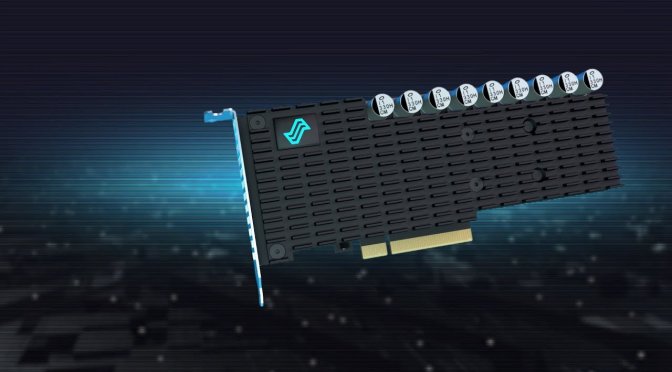Sony and Epic Games have been describing the PS5 SSD as something that high-end SSDs cannot come close to. In fact, Epic Games’ CEO, Tim Sweeney, claimed that the PS5 SSD is far ahead of anything that you can buy in any PC for any amount of money right now. Well, apparently he was wrong as there is already an SSD that is way faster than the PS5 SSD.
Enter Liqid Element LQD4500 PCIe 4.0 x16 SSD. This SSD is based on multiple Phison PS5016-E16 controllers (with a PCIe 4.0 x4 interface), featuring a custom firmware. And, in case you’re wondering, it can provide up to 24GB/s speeds, with up to 4M IOPS.
For reference, the PS5 SSD will provide up to 9GB/s speeds. So yeah, it won’t be the fastest SSD on the planet as some companies are presenting it.
Now obviously this SSD is not meant for you or me. This is an SSD for enterprises, and not for gamers. However, I want remind you Tim Sweeney’s comment.
“The PS5 SSD is far ahead of anything that you can buy in any PC for any amount of money right now.”
Well… nope. If money is no object, you can get a faster SSD on the PC. But then again, that wouldn’t make those lovely headlines. What Tim should have said was that the PS5 SSD is faster than any SSD PC gamers can afford right now. And he would be right.
All in all, we’re not saying that the PS5 SSD won’t be a beast. We are saying that people should not be over-hyping products. As simple as that.
LinusTechTips has benchmarked this SSD, so be sure to watch the video!
UPDATE:
Linus apologized to Tim Sweeney for his comments.

John is the founder and Editor in Chief at DSOGaming. He is a PC gaming fan and highly supports the modding and indie communities. Before creating DSOGaming, John worked on numerous gaming websites. While he is a die-hard PC gamer, his gaming roots can be found on consoles. John loved – and still does – the 16-bit consoles, and considers SNES to be one of the best consoles. Still, the PC platform won him over consoles. That was mainly due to 3DFX and its iconic dedicated 3D accelerator graphics card, Voodoo 2. John has also written a higher degree thesis on the “The Evolution of PC graphics cards.”
Contact: Email

